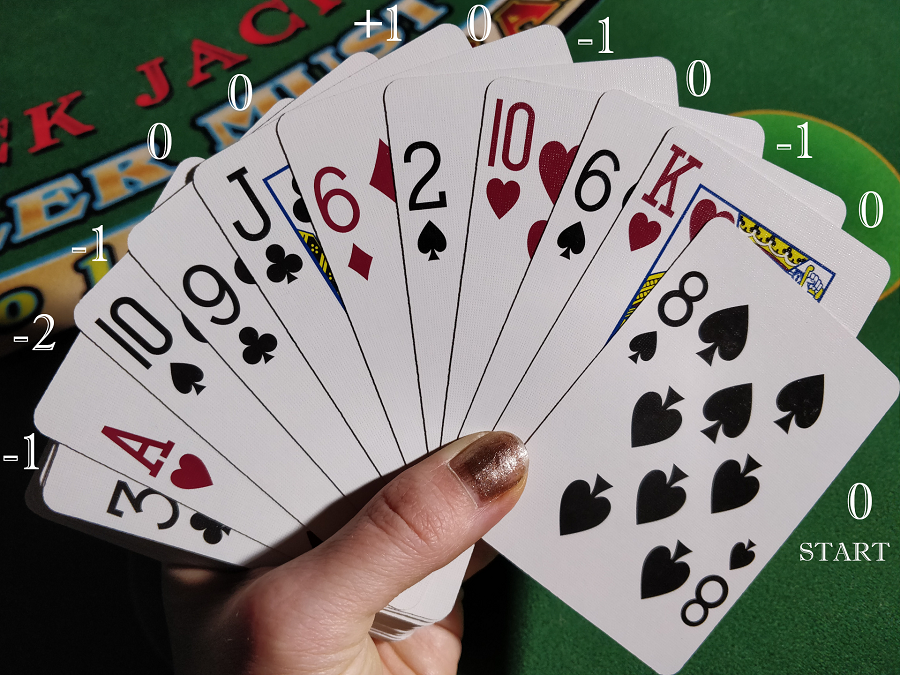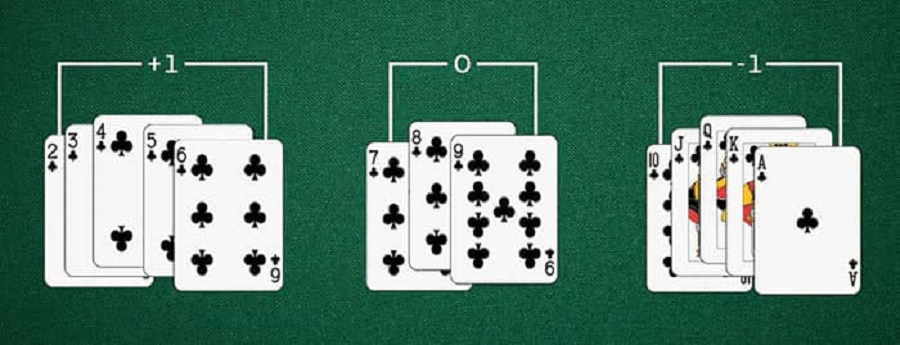Card counting techniques range from genuinely easy to ludicrously perplexing. This article gives directions on making a card including methodology and in doing as such depicts the different qualities of counting frameworks. It could be of revenue regardless of whether you wish to make a technique however need to find out with regards to the make-up of such frameworks.
Making another system is easy on the off chance that you start with a current procedure. In the event that you wish to begin without any preparation there is a smidgen more work. There are a lot of procedures in the books. Be that as it may, many individuals do jump at the chance to basically adjust a current methodology to more readily meet their requirements.
- Card Counting Tools
- The accompanying apparatuses are required:
- Effectiveness Calculator – Tells you how proficient a specific count is
- List Generator – To make new playing files
- Test system – To calibrate and quantify the viability of the new methodology
- Card Counting Tag Values
First you need to choose the card point esteems. On the off chance that you have as of now done this, you can jump to the Index Generation area. Despite the fact that perusing this part might add to your arrangement. Each card has a point esteem like +1 or – 1. There are a few qualities of considers follows:
Genuine Count versus Running Count –
As cards are seen, you keep a running amount of the card label esteems. Running Count frameworks utilize this count for both wagering and playing choices. Genuine Count frameworks necessitate that you partition the RC by a number addressing the quantity of cards that have been seen. There are different strategies for changing RC over to TC (for example division, increase, tables.) TC frameworks by and large utilize this TC for all playing choices. Most additionally use it for wagering choices. There are exemptions for both of these standards. RC systems are for the most part simpler to utilize and TC methodologies are by and large more exact.
Adjusted versus Uneven –
In a decent methodology, all of the point esteems aggregate to nothing. In a lopsided technique, the amount of the relative multitude of cards is positive. Uneven methodologies enjoy a benefit since they can be utilized in the simpler running count frameworks. In spite of the fact that they can likewise be utilized in TC frameworks. Adjusted techniques enjoy a benefit in that they are for the most part a smidgen more exact (there are special cases) and the count drifts around zero making counting simpler and wagering methodologies simpler.
Pro Reckoned versus Ace-Neutral –
Generally, the Ace is considered a negative number (Ace-figured) or zero (Ace-nonpartisan.) Ace-Reckoned methodologies are for the most part better for shoe games and Ace-Neutral procedures are by and large better for single and twofold deck. (Not in every case valid.) There are compromise techniques (for example Harmony, UBZ II) where the Ace is counted at half of the ordinary worth. This is especially useful for twofold deck and not awful for single deck or shoes. Nowadays, Ace-figured methodologies are more well known.

Level –
The level of a methodology alludes to the most elevated worth appointed to cards. Level 2 and 3 card counting techniques are more productive, however, a lot more hard for a great many people. Level 3, 4, and 5 methodologies additionally exist. Yet, this is pointless excess. The most famous procedures these days are level 1. In a level 1 technique, tens are considered – 1 and a few or all low cards are considered +1.
Side Counts –
Some systems utilize at least one side counts. The most widely recognized is including the Aces in a different build up to make wagering more exact in Ace-nonpartisan frameworks. This is on the grounds that Aces are huge cards for the motivations behind wagering however little cards for the reasons for playing when you don’t have a Blackjack.
Suit/Color Aware Counts –
Some count will have distinctive label esteems for red and dark cards. Models are Red7 and KISS. The endeavor here is to acquire a large portion of the benefit of a more elevated level system without the higher scope of counts. I would expect the blunder rate would increment to some degree yet have no figures for this.
Other convenience contemplations –
The less the quantity of cards counted the simpler the count. Likewise, the more card matches that add to zero the better. This is on the grounds that most counters count sets of cards whenever the situation allows. In the event that you see a +1 and a – 1 card simultaneously, you consequently disregard them since they aggregate to nothing.










